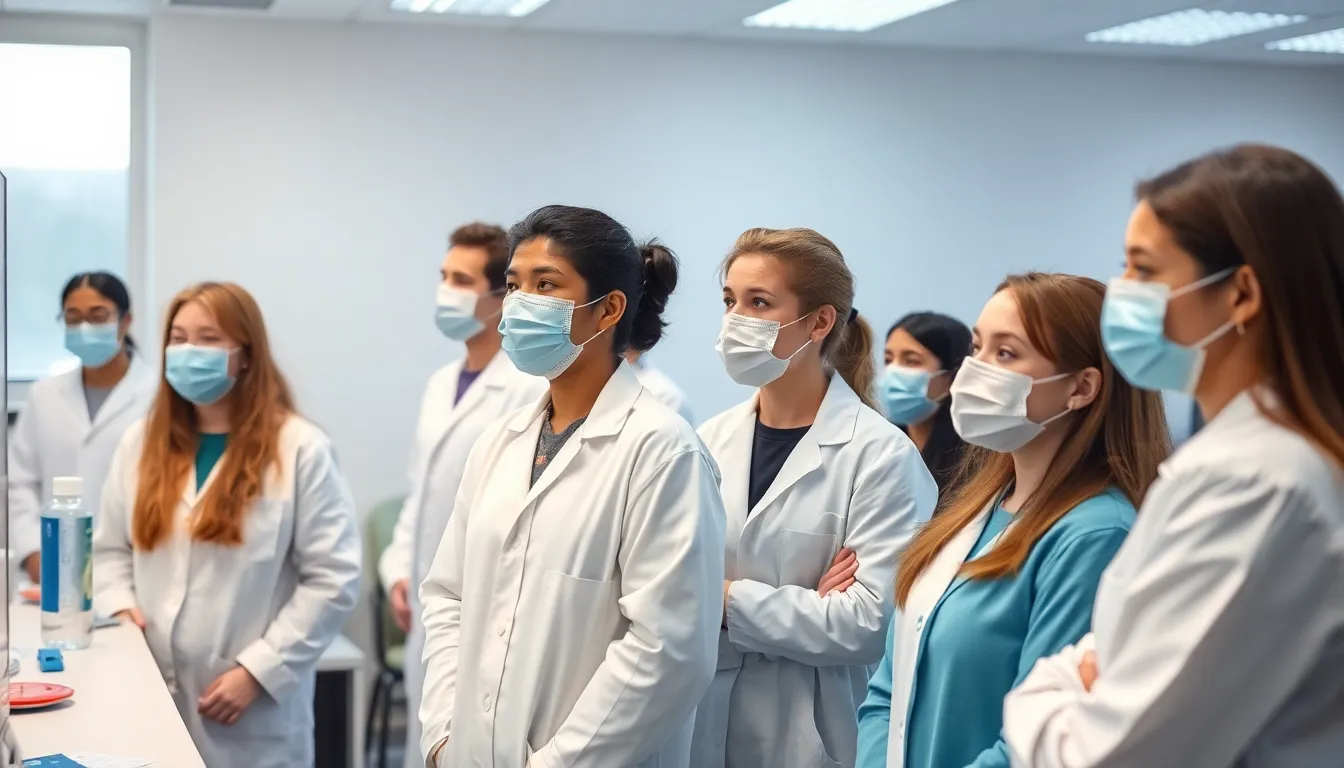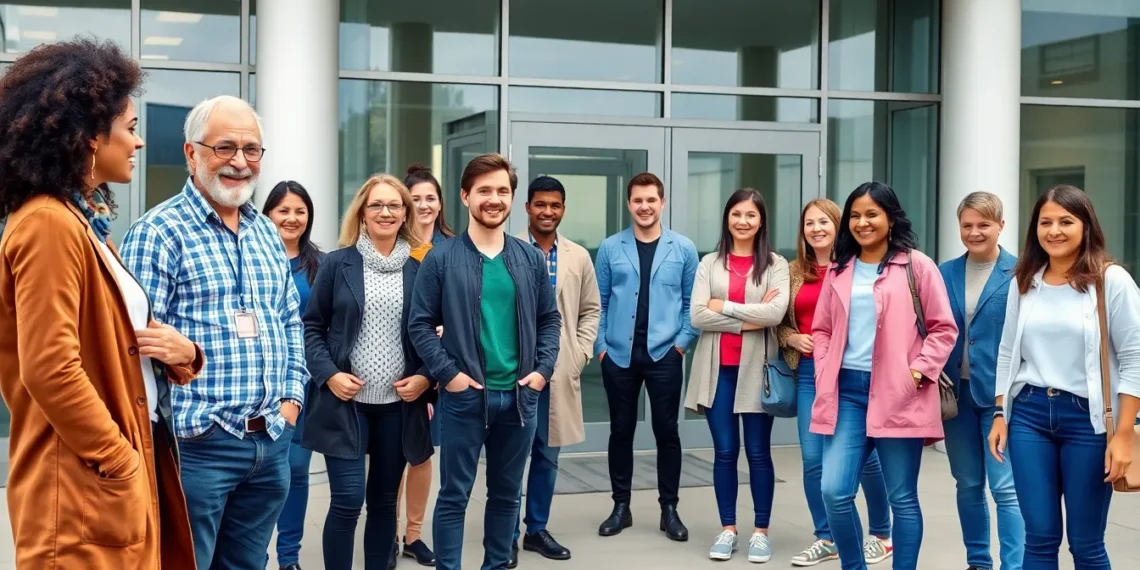In the race against COVID-19, the UK has taken a bold approach that’s catching global attention: challenge trials. Picture this: a group of brave volunteers signing up to be intentionally exposed to the virus, all in the name of science. It sounds like a plot twist from a sci-fi movie, but it’s real life, and it’s happening right now.
These trials aim to fast-track vaccine development and understand the virus better, all while keeping a sense of humor about the situation. After all, who wouldn’t want to be a part of history—while wearing a mask and social distancing, of course? With the stakes high and the science fascinating, the UK’s challenge trials are not just a gamble; they’re a daring leap into uncharted territory that could change the course of the pandemic.
COVID 19 Challenge Trials UK
In the UK, Covid 19 challenge trials represent a pioneering method to understand the virus and accelerate vaccinations. Volunteers take part in these trials by deliberately exposing themselves to SARS-CoV-2. Scientists closely monitor these participants to gather essential data on the virus’s effects and how vaccines respond to it.
Challenges in the trials include safeguarding volunteer health while ensuring comprehensive scientific insights. Ethical considerations play a crucial role in shaping trial protocols, ensuring that participants fully understand potential risks. Various institutions, including universities and research organizations, collaborate to manage trial logistics and safety.
Results from challenge trials can lead to quicker vaccine development timelines. Real-time data helps researchers identify the most effective immunizations and refine strategies for combating Covid 19. Findings from these trials also contribute to broader public health strategies and inform future pandemic responses.
As the trials progress, ongoing analysis allows for adjustments in methodology, ensuring robust outcomes. Collaboration across disciplines enriches trial design, combining expertise from virology, immunology, and public health. Engagement with the volunteer community adds a personal dimension to the research endeavor, fostering a sense of collective responsibility in tackling the pandemic.
Through these innovative trials, significant advances in understanding Covid 19 could emerge, potentially transforming public health responses worldwide.
Purpose of Challenge Trials

Challenge trials serve a critical role in the fight against COVID-19. These trials provide insights into the virus’s behavior and inform vaccine efficacy effectively.
Understanding the Concept
Challenge trials involve healthy volunteers intentionally infected with SARS-CoV-2. Participants accept the risks to support vital research. Such trials help scientists explore the virus’s transmission and disease progression more thoroughly. Informed consent emphasizes participant awareness and ethical considerations, ensuring that volunteers understand the potential consequences. By engaging individuals in controlled environments, researchers gather data that complements traditional trials and enhances overall research quality.
Importance in Vaccine Development
Vaccine development benefits significantly from challenge trials. These trials accelerate the evaluation of potential vaccines under real-world conditions. Researchers can quickly assess immune responses and identify effective candidates more rapidly than standard methods allow. Data obtained from infected participants allow for a deeper understanding of efficacy and safety profiles. Ultimately, challenge trials contribute to shorter timelines for vaccine approvals, helping to combat COVID-19 more effectively.
The UK Context
The UK’s approach to COVID-19 challenge trials highlights an innovative strategy in public health research. Researchers aim to gather critical insights while ensuring the safety and well-being of volunteers.
Regulatory Framework
The UK government established a comprehensive regulatory framework to oversee challenge trials. Authorities, including the Medicines and Healthcare products Regulatory Agency (MHRA), set stringent guidelines to ensure participant safety. This framework facilitates rapid approval processes, allowing researchers to initiate trials efficiently. Trial sponsors must demonstrate the scientific merit of their proposals to receive ethical clearance. The UK remains committed to transparency and public trust while conducting these trials.
Ethical Considerations
Ethical considerations play a vital role in the execution of challenge trials. Informed consent is essential, ensuring participants understand potential risks associated with intentional infection. Researchers adopt strict criteria for participant selection, focusing on health and minimizing vulnerability. The ethical review process evaluates trial protocols to reinforce safety measures. Balancing scientific advancement with individual rights remains paramount for building public confidence in these initiatives. Overall, the UK prioritizes participant welfare while pursuing groundbreaking research in the fight against COVID-19.
Implementation of Challenge Trials in the UK
The UK employs a structured approach to implement challenge trials for COVID-19. This method helps speed up vaccine development while maintaining participant safety.
Recruitment Process
Recruitment involves targeting healthy adult volunteers eager to contribute to research. Interested individuals undergo pre-screening to assess eligibility based on health criteria. Participants must provide informed consent, ensuring they understand risks and benefits. Outreach efforts focus on diverse populations to enhance representation. Successful recruitment relies on clear communication about the purpose and requirements of the trials.
Trial Methodology
Trial methodology utilizes a controlled environment to expose volunteers to SARS-CoV-2. Researchers monitor participants closely throughout the trial, collecting data on symptoms and immune responses. The process includes randomization, ensuring unbiased results. Interdisciplinary teams work together to refine protocols and optimize safety measures. Detailed ethical guidelines govern the trials, further protecting participant welfare and fostering public trust in the research undertaking.
Results and Findings
Challenge trials have significantly shaped public health responses to COVID-19. The UK approach demonstrated an ability to accelerate vaccine development while ensuring participant safety. Data from these trials contributed to informed public health strategies, enhancing understanding of virus transmission and immune responses.
Impact on Public Health
Efforts in challenge trials provided critical insights that informed policies and guidelines. Vaccine efficacy assessments led to rapid decision-making regarding immunization campaigns. Trials helped identify vulnerable populations, aiding targeted approaches for health interventions. As researchers gathered real-time data, authorities could adapt strategies quickly to emerging variants. Collaboration between governmental bodies and research institutions strengthened public trust in health initiatives.
Lessons Learned
Researchers gained valuable insights regarding trial protocols and participant safety. Emphasizing clear communication proved essential in fostering volunteer engagement and understanding. Ethical considerations around informed consent became pivotal, reinforcing the need for transparency. Additionally, interdisciplinary collaboration improved methodological designs, optimizing safety measures and scientific rigor. Future studies will build upon these findings, potentially enhancing the effectiveness of similar trials in addressing other infectious diseases.
Future of Covid 19 Challenge Trials
Covid-19 challenge trials represent a significant advancement in public health research, paving the way for innovative vaccine development strategies.
Potential Expansion
Expansion of covid-19 challenge trials could include broader demographic representation, enhancing generalizability of findings. Continued inclusion of diverse volunteer populations helps address health disparities. Researchers may explore additional variants of SARS-CoV-2, ensuring trials adapt to emerging challenges in the pandemic. Incorporation of advanced technologies, such as AI, could streamline data analysis, improving the speed of insights gained. Collaborations with international research bodies might foster innovative methodologies, further enhancing trial effectiveness.
Challenges Ahead
Challenges related to ethical considerations persist as trials advance. Volunteers may face concerns regarding long-term effects of intentional infection, necessitating robust support systems. Communicating risks and benefits transparently remains crucial for building public trust. Regulatory frameworks must continuously adapt to emerging data, ensuring participant safety while facilitating progress. Limited public interest could hinder recruitment efforts, affecting trial outcomes. Addressing these challenges effectively is paramount to maximize the potential of challenge trials in combating future infectious diseases.
Conclusion
The UK’s challenge trials represent a significant leap forward in the fight against COVID-19. By embracing innovative research methods and prioritizing participant safety, these trials pave the way for accelerated vaccine development and a deeper understanding of the virus. The collaborative efforts among researchers and institutions not only enrich the scientific process but also foster trust within the community.
As the landscape of infectious disease research evolves, the lessons learned from these trials will undoubtedly inform future studies. Continued focus on ethical considerations and transparent communication will be essential in maintaining public confidence. The future holds promise for further advancements in vaccine strategies and public health initiatives, driven by the insights gained from these groundbreaking trials.









